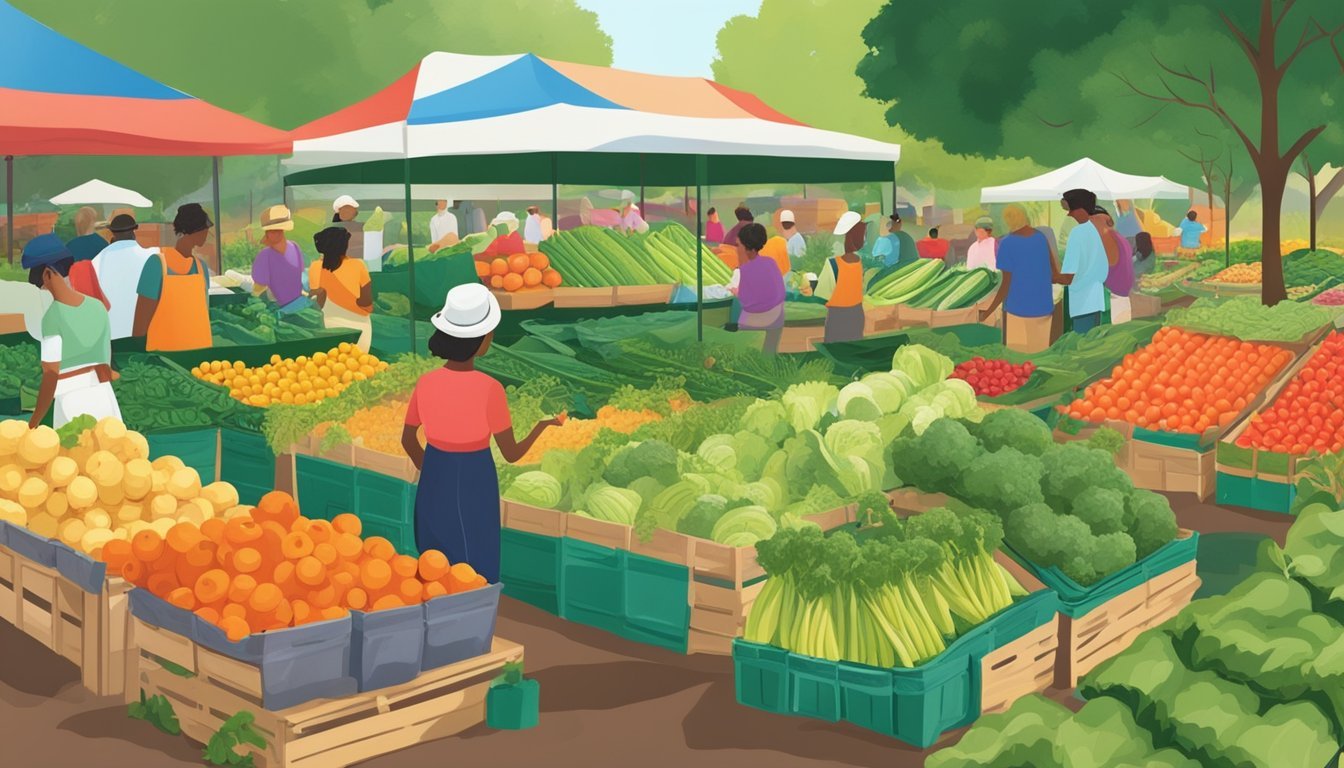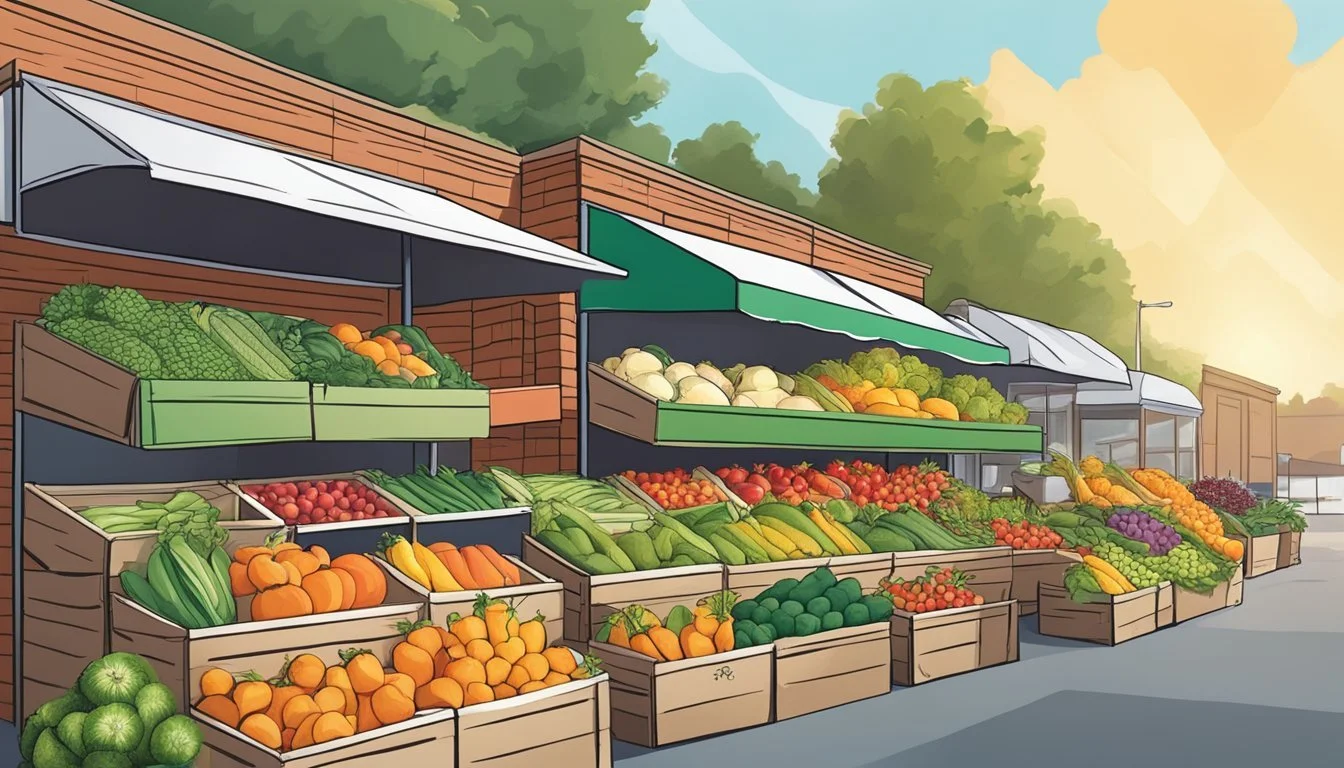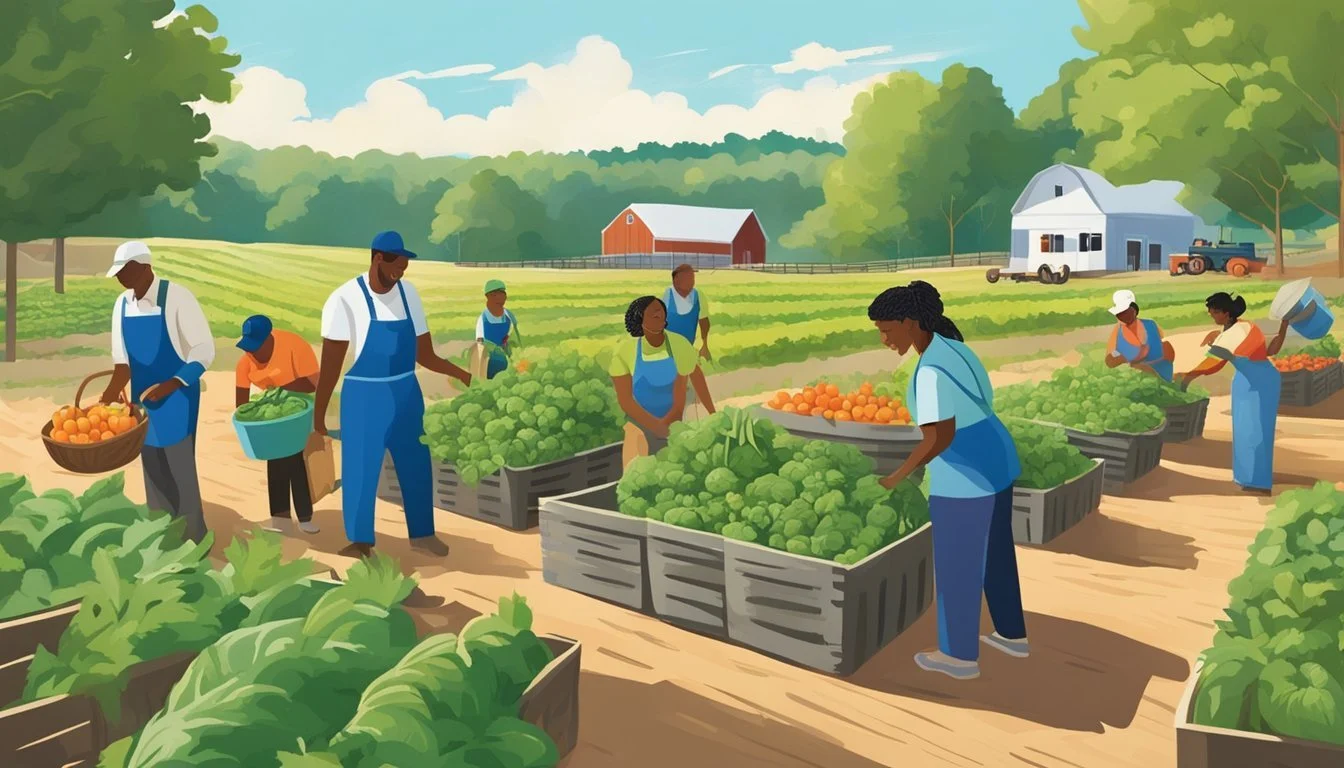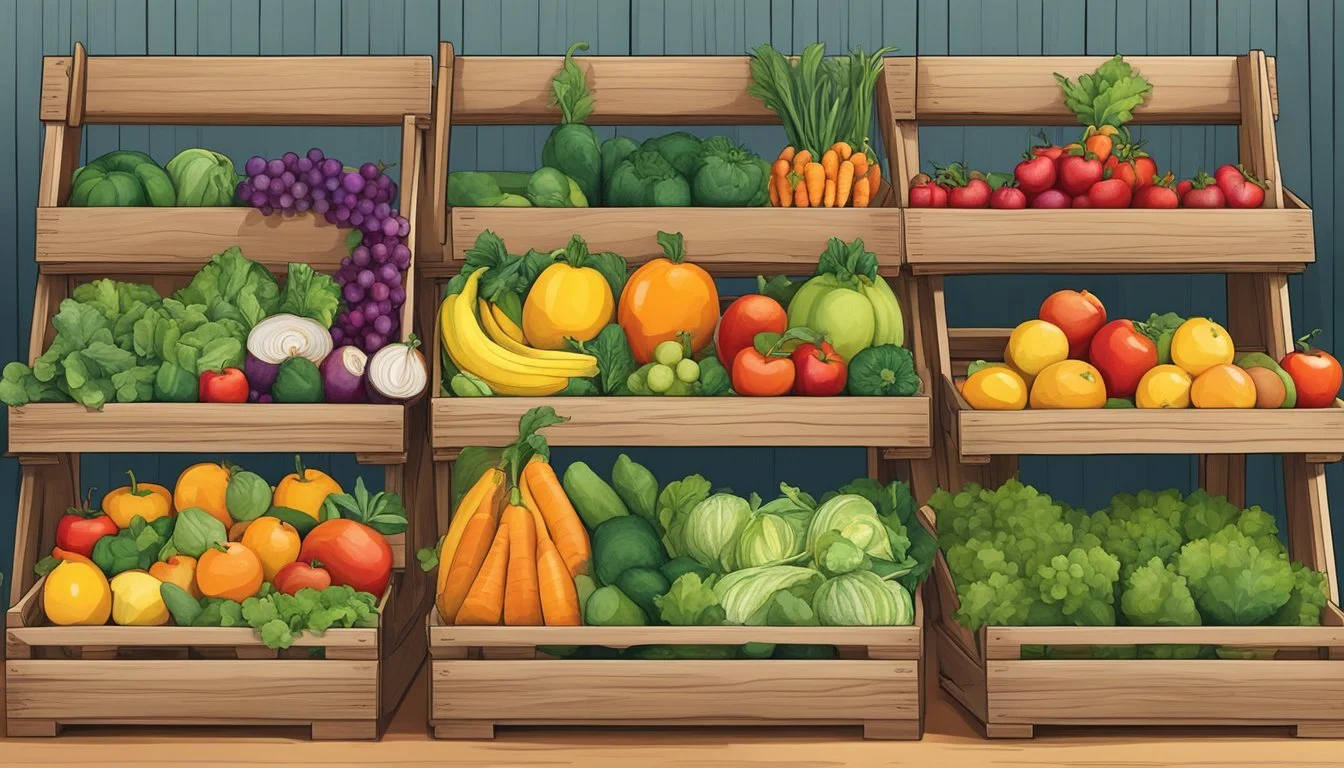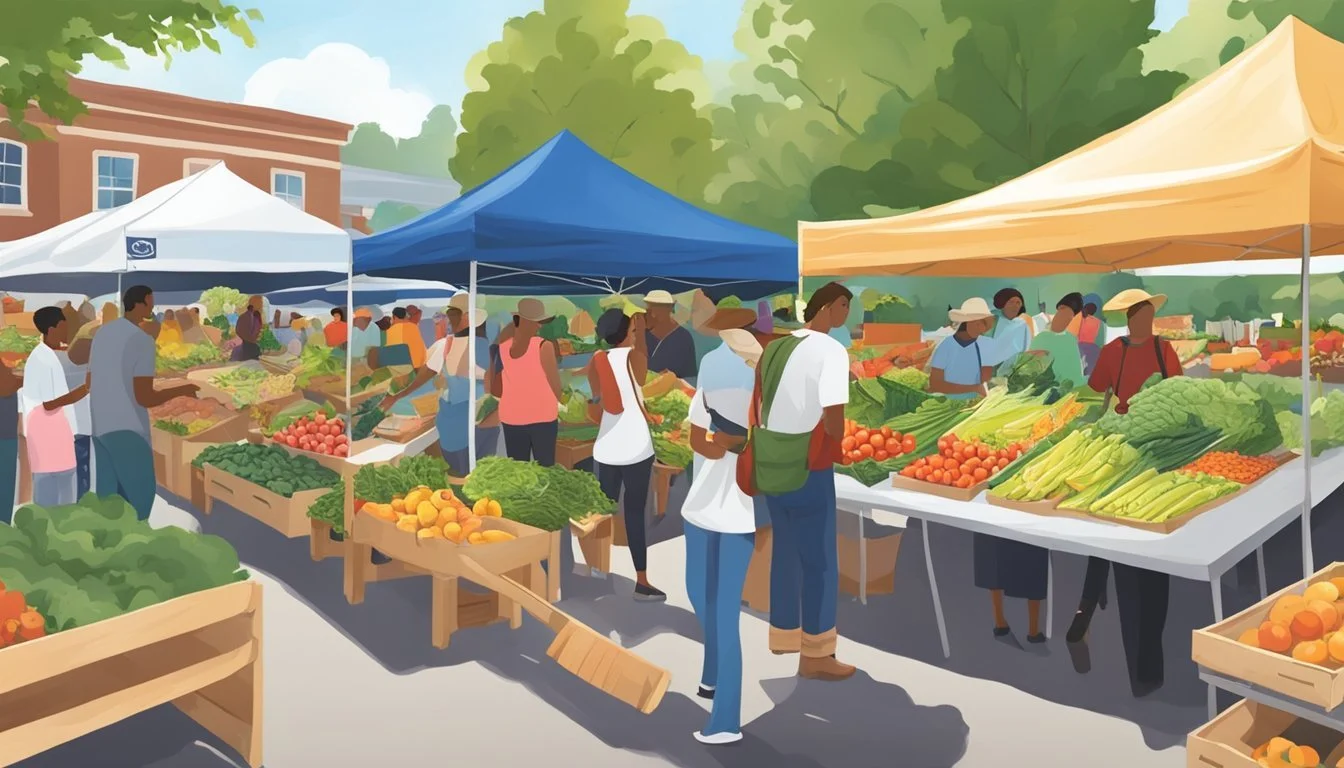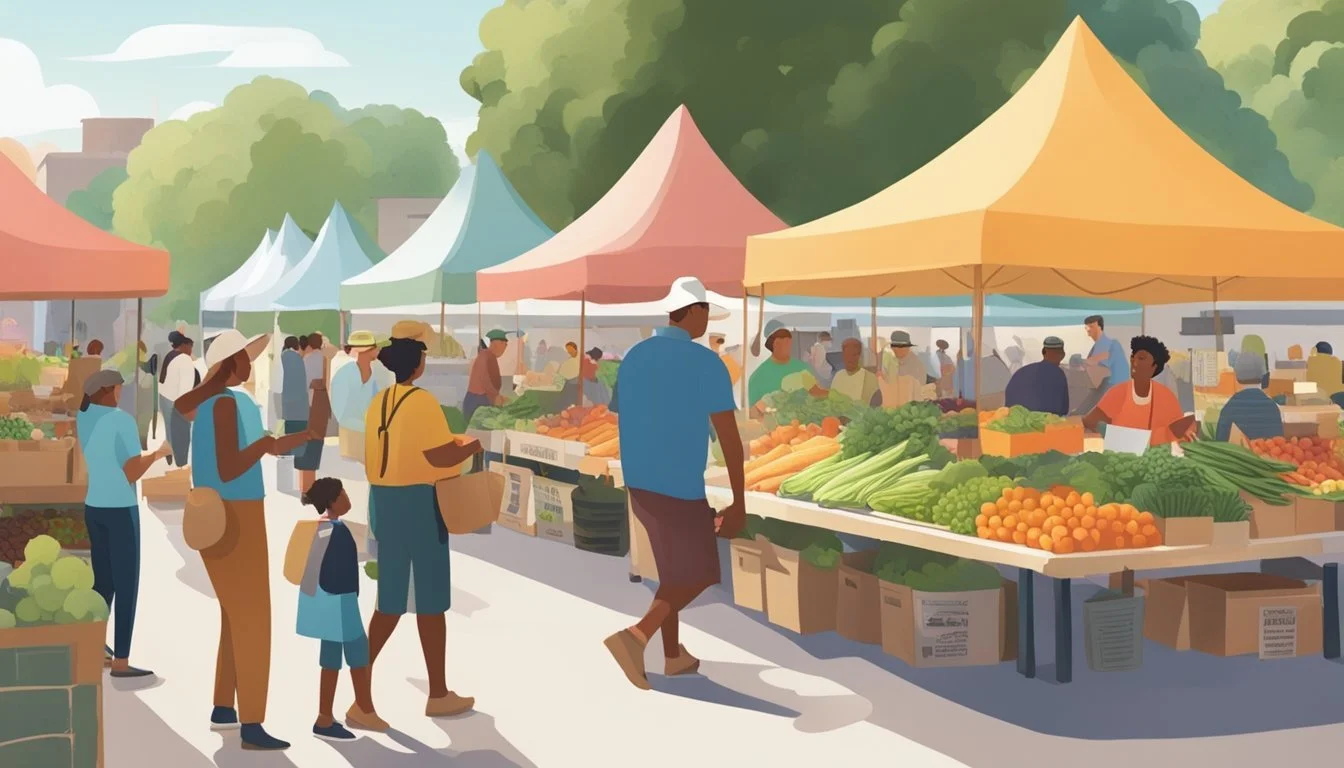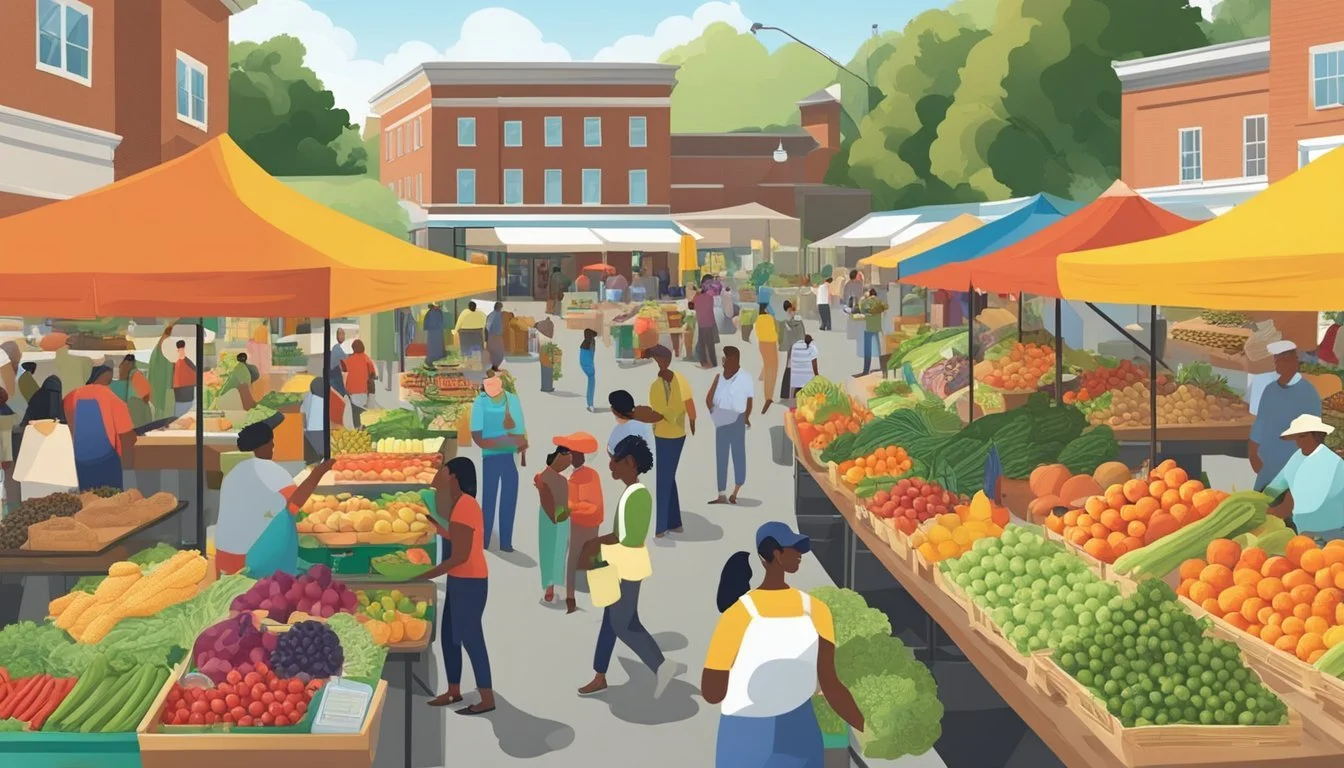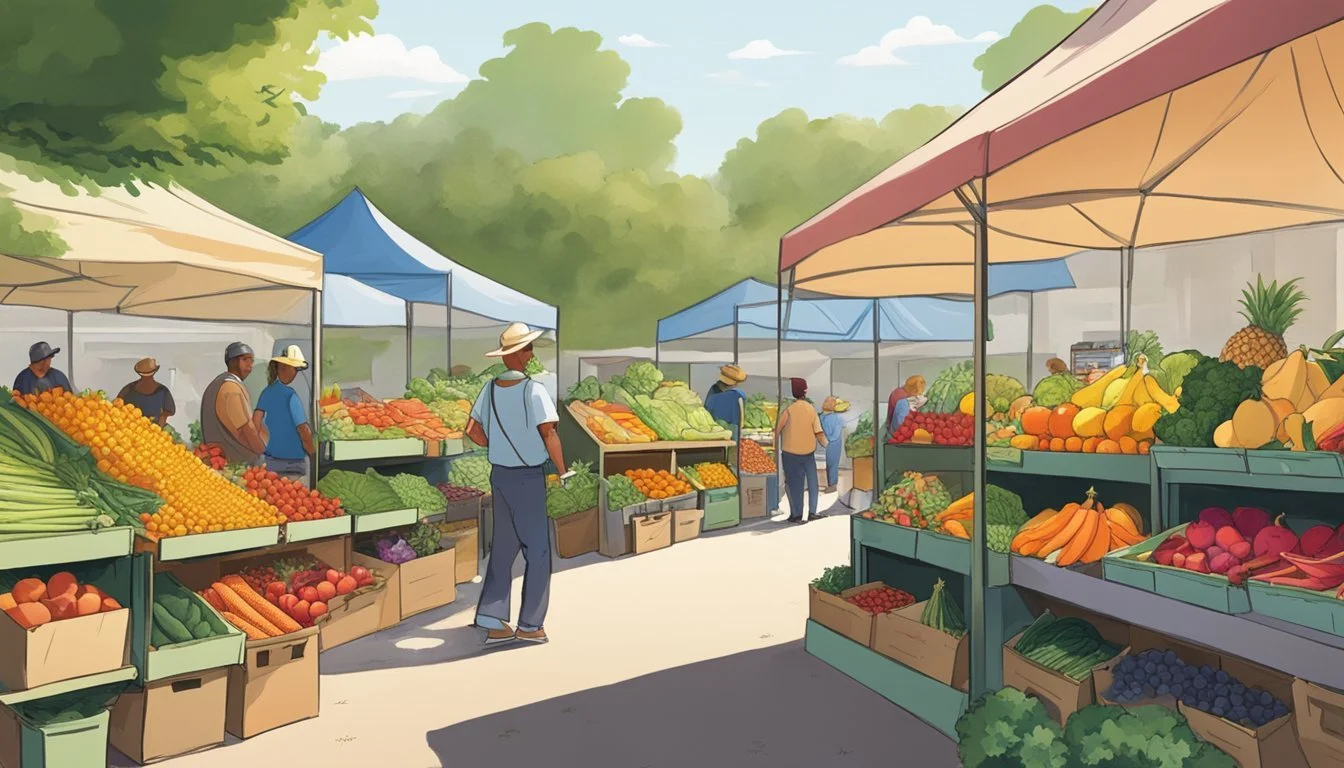Community Supported Agriculture (CSA) in Sandy Springs, GA
A Guide to Local Farm Partnerships
Community Supported Agriculture (CSA) represents a growing movement towards fresh, local food in Sandy Springs, GA, and the surrounding Atlanta area. This innovative model allows consumers to subscribe to the harvest of a local farm or group of farms, ensuring that they receive a regular share of seasonal produce. With a focus on organic and sustainable growing methods, CSAs support not only healthy eating but also local economies, fostering a closer connection between consumers and the source of their food.
In Sandy Springs and nearby regions, a variety of CSA programs are available, offering an abundance of choices in terms of produce, as well as other farm products like bread, eggs, meat, dairy, grains, and honey. These programs offer flexibility in pick-up and customization options, which makes it convenient for subscribers to incorporate fresh, locally grown products into their daily lives. By engaging with a CSA, residents of Sandy Springs contribute to the viability of local farms, receive education on seasonal eating, and help to create a more resilient local food system.
The CSA model in Sandy Springs benefits from a cooperative network of over 50 growers and producers utilizing organic and sustainable farming practices. This cooperative effort not only ensures variety and availability of produce but also adheres to the principle of fair earnings for farmers. Participation in a local CSA is a commitment to agricultural responsibility and community well-being, promoting a sustainable future for both local farms and the diverse communities they serve.
Understanding CSA
Community Supported Agriculture (CSA) represents a collaboration between local farms and community members who subscribe to receive a portion of the farm's produce. This relationship underpins a system where both risks and rewards of farming are shared.
Definition and Principles
CSA is a model where community members purchase membership shares from a local farm and, in return, receive regular distributions of the farm's produce. The principles of CSA emphasize community involvement, support for local agriculture, and a consistent connection to the source of one's food. By subscribing to a CSA, members provide financial support upfront, allowing farms to plan their growing season with assured demand.
Community involvement: Individuals collectively support the farming operation, fostering a strong relationship with the farm.
Support for local agriculture: Funds go directly to farmers, helping to sustain local food systems.
Connection to food source: Members receive fresh, seasonal products, connecting them with the rhythm of agricultural life.
History of CSA in Sandy Springs
In Sandy Springs, GA, CSA programs have been growing in popularity. Serenbe Farms, located in nearby Chattahoochee Hills, is an example of a farm that provides CSA shares to the residents of Sandy Springs. This farm illustrates the burgeoning trend of locally sourced agriculture by offering organic produce diversity through their subscription service.
Serenbe Farms: An 8-acre organic farm that has been offering CSA memberships, demonstrating the demand for fresh, organic produce in the region.
Growth of CSA: The concept has evolved in the area, connecting residents with the benefits of local, sustainable food practices.
Benefits of Joining a CSA
Community Supported Agriculture in Sandy Springs, GA, offers tangible advantages that impact both the local ecosystem and residents' well-being. Joining a CSA facilitates access to organic produce, bolsters the local economy by supporting farmers, and contributes to sustainable agricultural practices.
Fresh and Organic Produce
Members of a CSA enjoy the freshest vegetables and fruit, typically harvested within a day of distribution. This gives them access to organic produce free from synthetic pesticides and fertilizers. The health benefits of consuming fresh, less processed foods are clear—members often report better taste and quality.
Supporting Local Farmers
Joining a CSA directly benefits local farmers by providing them with a stable income and financial security. This community-oriented model fosters a closer relationship between consumers and growers, ensuring that the people behind the food production receive fair compensation for their labor.
Environmental Advantages
Sustainable farming practices are central to most CSA models. By emphasizing organic methods and reducing transportation distances for food, CSAs in Sandy Springs play a role in minimizing carbon footprints and preserving local landscapes.
Health and Nutrition
CSA participants generally see improvements in their health and nutritional intake by eating more vegetables and fruit. The varied assortment in a CSA share encourages a balanced diet rich in vitamins, minerals, and fiber, contributing to overall well-being.
Local CSA Farms
Community Supported Agriculture in Sandy Springs, GA, connects residents with fresh, locally-sourced produce straight from the nearby farms. Four notable CSA farms serve the area, each with unique offerings that contribute to the sustainably-minded food community.
Riverview Farms
Riverview Farms, located in Calhoun, is a CSA farm delivering a diverse array of produce across seasons. They practice organic methods, ensuring members receive the highest quality vegetables and fruits. Membership provides a weekly selection of these farm-fresh items.
Serenbe Farms
Situated in the pastoral setting of Chattahoochee Hills, Serenbe Farms focuses on building a strong local food system. Their CSA program features organic vegetables, herbs, and flowers grown with ecological farming techniques, reflecting their commitment to the environment and community health.
Heritage Farm
Heritage Farm in Bowdon offers a CSA with an assortment of produce, eggs, and meats. Their farming practices prioritize animal welfare and soil health, which the CSA members directly support through their subscriptions, fostering a connection with the source of their food.
Truly Living Well
Truly Living Well in East Point brings a local farm experience into the urban environment. They provide residents with access to fresh, organically-grown produce while promoting urban agriculture education within the community through their CSA program.
How CSA Works
Community Supported Agriculture embodies a model where consumers buy shares from local farms, directly supporting the farm's operations and sharing in the bounty of the harvest. Consumers become shareholders of the farm, and in return, they receive a regular allotment of the farm's produce throughout the growing season.
Choosing the Right Share
The cornerstone of a CSA is its share system. Individuals interested in joining a CSA in Sandy Springs, GA must decide which share option aligns with their needs. A typical share includes a weekly box of assorted vegetables and may also contain fruits, herbs, and flowers. Farms sometimes offer different sizes of shares, such as a full share for larger households or a half share for smaller households or those new to CSAs.
Understanding the Costs
Subscribing to a CSA involves an upfront monetary commitment that supports the farm's operations. This cost varies based on farm size, production capacity, and share type. It often works out to a weekly expense, which historically compares favorably with retail pricing for organic produce. Funds typically cover everything from seed to labor, helping the farm sustainably plan for the season.
Seasonal Variations
CSA shares fluctuate with the seasons, meaning the produce shareholders receive is seasonal and fresh. The offerings in spring might differ significantly from those available in the fall, reflecting the natural growth cycle of the crops. Most CSA programs in the Sandy Springs area outline a clear start and end to the season, weather-dependent, which can range from late spring through late fall for a standard growing season.
CSA Products and Offerings
Community Supported Agriculture in Sandy Springs, GA, provides a diverse range of farm-fresh products directly from local farmers. Subscribers to CSA programs can expect a seasonal selection of freshly harvested food items, as well as unique specialty additions.
Variety of Produce
Members of a CSA can typically expect a bounty of vegetables and fruits that change with the seasons. The produce selection may include over 50 different types of seasonally available vegetables and fruits, spanning over 300 varieties. These may range from common staples like tomatoes and apples to less common items like kohlrabi and persimmons.
Beyond Vegetables: Other Products
While the core of most CSA offerings revolves around vegetables and fruits, many CSAs in Sandy Springs also supply other farm products. These can include:
Eggs: Fresh from the farm, often from free-range chickens.
Meat: Various types of meats may be offered, such as beef, chicken, and pork from animals raised on the farm.
Cheese: Artisanal cheeses produced locally.
Honey: Locally harvested honey is sometimes available, providing a sweet addition to the weekly offerings.
Specialty Items and Add-Ons
In addition to the regular produce and farm products, subscribers may have the option to receive specialty items. These items are often available as add-ons to the standard CSA share. Such specialty items may include:
Bread: Some CSAs collaborate with local bakeries to offer freshly baked bread.
Flowers: Seasonal bouquets can brighten up a home and are a popular add-on.
Farm Products: Occasional offerings like jams, syrups, and pickled goods produced on the farm.
These CSA programs support local agriculture and provide members with a direct connection to the source of their food while offering diverse, high-quality local products.
Community Engagement and Events
Community Supported Agriculture in Sandy Springs, GA, fosters an intimate bond between the community and local farmland, encouraging residents to actively participate in a variety of events that strengthen relationships and enhance communal knowledge about sustainable agriculture.
Farm Visits and Tours
Farm visits and tours offer community members firsthand exposure to the workings of a CSA. They can see the diversity of crops and learn about organic farming practices. These visits often serve as both educational experiences and a means to solidify the community's ties to the local farmland.
Next Scheduled Tour: April 15, 2024
Activities Include: Walking tour, Q&A with farmers, picking sessions
Workshops and Education
CSAs in Sandy Springs place a high value on education. Workshops range from sustainable farming practices to cooking sessions where attendees learn to create dishes from the CSA's own produce. Each event aims to empower members with the knowledge to support and perpetuate local food systems.
Upcoming Workshop: "Seasonal Recipes and Preservation"
Date: May 8, 2024
Focus: Utilizing local produce in home cooking, preserving techniques for seasonal abundance
Community Gatherings
Community gatherings cultivate a shared responsibility for the success of the CSA. These events may include seasonal festivals, potlucks featuring local recipes, or volunteer days aimed at preserving the farmland. Such occasions bolster the feeling of kinship among participants and their connection to the food they consume.
Next Gathering: Annual Harvest Potluck
Date: September 20, 2024
Expect: A showcase of community dishes, music, and storytelling
Supporting Sustainability
Community Supported Agriculture (CSA) in Sandy Springs, GA encourages sustainable agricultural practices and bolsters the local food economy. Programs in this area prioritize organic, certified natural, or homegrown produce, delivering tangible benefits to the community and environment.
Organic and Eco-friendly Practices
CSA programs in Sandy Springs facilitate access to produce that adheres to organic and eco-friendly standards. Local organic farmers engage in practices designed to minimize their environmental impact, such as reducing chemical use and conserving water. Customers can expect food that is:
Organic: Grown without synthetic pesticides or genetically modified organisms.
Eco-friendly: Harvested using methods that foster soil health and reduce carbon footprint.
Local Economies and Food Systems
The commitment to local food systems is crucial. It empowers local economies, as consumers' investments go directly to regional growers, thus ensuring that their spending supports their immediate community and sustains local businesses. This approach also contributes to:
Reduced Transportation: Shorter distances for food to travel from farm to consumer.
Freshness and Quality: Access to freshly-harvested and often grass-fed products.
Challenges and Considerations
In the context of Sandy Springs, GA, Community Supported Agriculture (CSA) shares are subject to several challenges and considerations. From environmental unpredictability affecting crops to the economic implications for members, these aspects shape the CSA experience.
Weather and Crop Uncertainty
Unpredictable weather patterns, particularly in the changing seasons, can have a significant impact on crop yields. Farmers and shareholders alike must navigate the risks associated with too much or too little rain, early frosts, or extreme temperatures. These variables can influence the variety and abundance of produce available in CSA shares.
Financial Commitment
Joining a CSA requires a financial commitment upfront, which can be a hurdle for some potential members. Shareholders typically pay for their shares of the farm's produce at the start of the growing season. This model provides necessary capital for farmers but locks members into a season-long engagement, potentially without a guarantee on investment if crop yields are low.
Member Responsibilities
In some CSAs, members may take on responsibilities beyond a financial investment. These duties could range from participating in the harvest to aiding in the distribution of produce. The commitment enhances the community spirit of the CSA but also requires time and effort that members must be willing to provide.
Through these considerations, stakeholders must balance the risks and rewards that come with a shared-stake in local agriculture.
Joining a CSA
When residents of Sandy Springs, GA consider joining a Community Supported Agriculture (CSA) program, they are embarking on a journey that involves direct subscription to a farm's produce, fostering a closer relationship with their farmer, and engaging with the community in a meaningful way.
How to Sign Up
To become a member of a CSA in Sandy Springs, individuals typically search for local farms offering CSA memberships. A subscription can often be completed online through the farm's website or in person at a farmers market. Most CSAs require members to sign up prior to the growing season, and they provide various subscription plans that can include weekly or bi-weekly shares of produce.
What to Expect
Members should expect seasonal, locally grown produce that may vary weekly based on what is currently being harvested. They should be prepared for:
A diverse array of vegetables and sometimes fruits, herbs, and other farm products.
The need for flexibility in menu planning around the CSA contents.
Learning opportunities about new types of produce and ways to prepare them.
Building a Relationship with Your Farmer
Joining a CSA is more than just receiving food; it's about building a strong relationship with the farmer and understanding the process of food production. Members can:
Visit the farm during open farm days or volunteer events.
Engage directly with farmers for tips and insights, often at CSA pickup locations or farmers markets.
Offer feedback that can help farmers tailor future offerings to community needs.
Additional Resources
In navigating the realm of Community Supported Agriculture in Sandy Springs, GA, individuals have access to various resources. These include local food directories for finding CSAs, educational content to stay informed, and online platforms for engaging with the community.
Local Food Directories
Individuals can utilize LocalHarvest, a comprehensive directory that connects consumers to local CSAs, farmers markets, and other local food sources. The directory includes detailed listings such as Serenbe Farms in Chattahoochee Hills and 2 Hill Farm in Sandy Springs, which offer a range of organic produce and participate in local farmers markets.
Serenbe Farms:
Location: Chattahoochee Hills, GA
Products: Over 50 types of vegetables, fruits, flowers, and herbs
2 Hill Farm:
Farmers Market Pickup: Sandy Springs (Sat), YMCA Buckhead (Tue)
Contact: Neil Taylor, 404-862-9394
Educational Articles and Newsletters
One can stay informed on CSA-related topics through articles and newsletters. Notable mentions include Edible Atlanta, which collaborates with over 50 growers to cover organic and sustainable growing practices, and provides insights into the variety of produce available.
Edible Atlanta:
Focus: Sustainable agriculture, CSA benefits, variety of produce
Availability: Online articles and subscription-based newsletters
Community Forums and Discussions
Forums and discussions present opportunities for individuals to participate in the CSA community. Platforms like LocalHarvest offer spaces where they can exchange ideas, discuss local farming practices, and share experiences with fellow CSA members and enthusiasts.
Community Engagement:
Platform: LocalHarvest forums
Activities: Discussions on shared risks and benefits, seasonal offerings, and local farming insights

